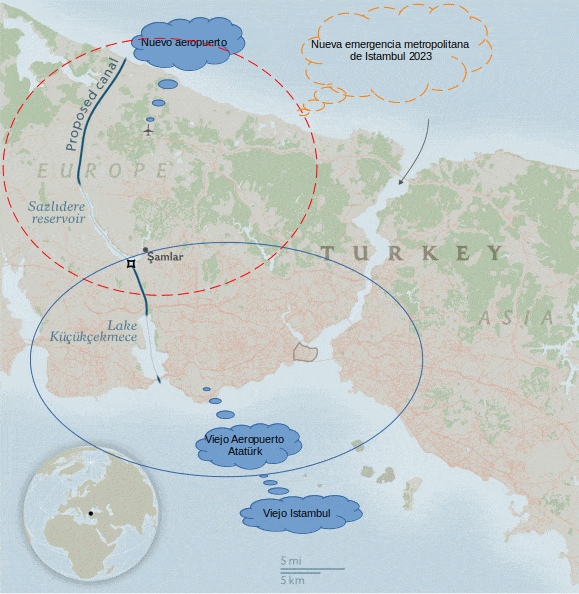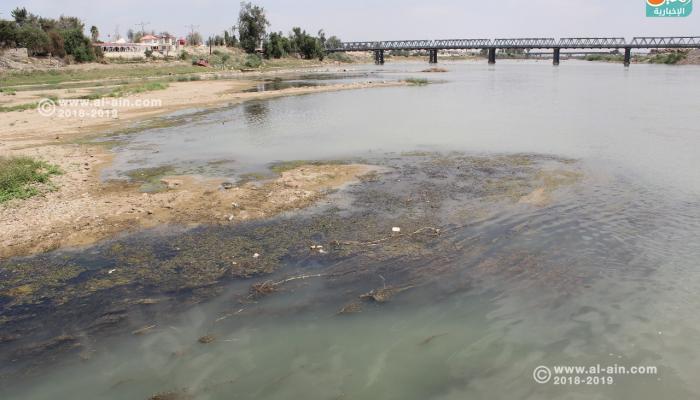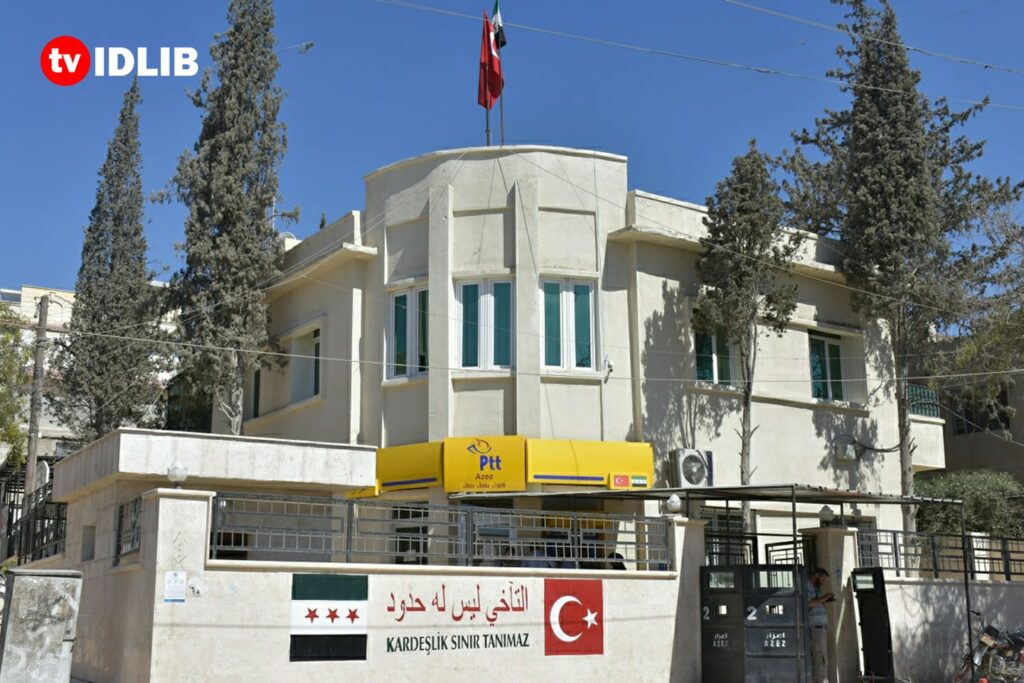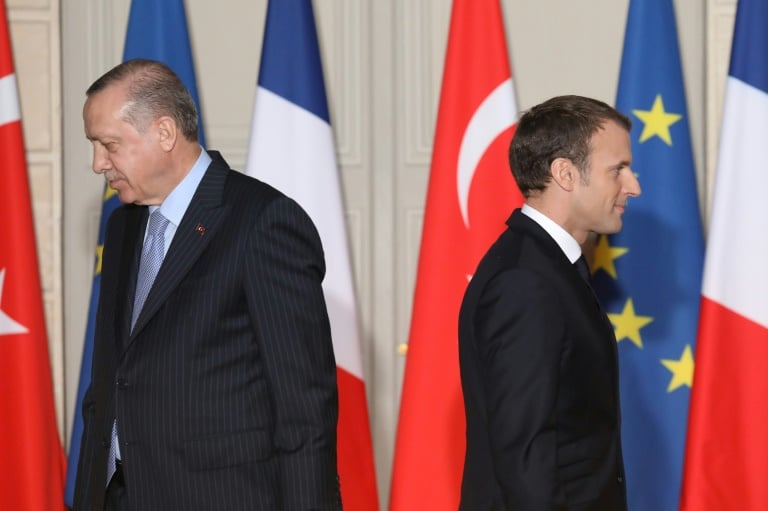This post is also available in:
 العربية (Arabic)
العربية (Arabic)  Español (Spanish)
Español (Spanish)  Français (French)
Français (French)
Summary.
The recent mediatic, populist, and/or calamitous events in France are just the tip of the iceberg of a geopolitical complexity rather than an internal demographic issue as it is intended to be. The first dimension refers to an articulated external pulse since the departure of the United Kingdom from the European Union, the Brexit, the second the dreadful Turkish rise in the Mediterranean and its regional emancipation as a resentful resurrection rather than an emerging power. That is, nothing to do with how it intends to appear in a fundamentalist demographic conflict with the supposed values of the French Republic. Supposed, I say, given that the controversial slogan of agitation, secularism is not even part of the republican currencies stamped constitutionally in the fourth paragraph of Article 2 of the Constitution of 1958, although it is part of the preceding definition in Article 1 “La France est une République indivisible, laïque, démocratique et sociale”, which ensures, however, equality based on race, sex, or religion, and yes, fraternity. This article will try to decipher the spurious motives of a geopolitical conflict over hegemony promoted mainly by Saudi Arabia and France.
Far from going into history, the Napoleonic wars and the struggle for hegemony in Europe, through the disaster of the Second World War, mainly driven by the Franco-German conflict; the departure of the United Kingdom from the European Union today has much more geopolitical repercussions for France than for any other Member State.
The European Union, a faithful passenger of the western alliance’s wagon during the Cold War, its agglutination was maintained in two geopolitical edges, and an industrial economic tractor (Alnasir, 2020). The first two are France and the United Kingdom, which also, because of their representation in the UN Security Council, were delegated the European nuclear power. Although France has always been more jealous about its military operational capacity, by asserting itself through its special status in NATO within a strategic post-colonial position in Africa and its scattered colonies around the globe, from the austral lands to the Caribbean, the Republic of Free Men is the only one power in the XXI century that maintains colonies in distant lands of the old continent. However, and despite this hegemonic greed, Germany understood after the disaster of the Second World War that the age of military operative hegemony has ended, so that its career was focused on economic-industrial prosperity, abandoning the military career to the actors of the old concept, so that despite the international political-military potential of the Franco-British axis. Germany always maintained the power of the last European word. Who pays is the lord, and that who performs is nothing more than a hitman. Moreover, the background of German industrial talent is potentially dominant. No matter how much French industry dominates European consumer markets, the heavy machinery in that industry is German, and no matter how much Airbus is Franco-German or Spanish-French; its technological structure, and background, is German, without a doubt.
However, the Brexit now does not only mean the institutional re-ordering of the Union, nor is it a simple exit from a Member State as it could be, Poland, Greece, or even Spain. Brexit means the French monopoly of nuclear capacity in the European Union, in addition to what could mean the monopoly of that hitman in the field of action. France suddenly emancipates itself as an unquestionable regional hegemony, which seriously endangers the order of stability for which the EU has been forged.
On the other hand, the Turkish emergence from its confinement to the deep Mediterranean is postulated as a new rider at the less expected time. Since its dismantling by the Treaty of Lausanne (1923), the Western powers had kept it in servitude, and free passage for the USSR navy into the Mediterranean, despite its tactical membership in NATO. Now, as a result of the invasion of Iraq, Turkey is emerging to demand compensation for its position and contribution to the Western powers, from dismantling of the USSR to the rights of passage across the Bosphorus, the bottleneck of the Mediterranean to Russia, seized by the Treaty of Lausanne in favor of the West. But the Turkish problem does not end there. The Bosphorus plug is vitally important to Russia, without it Russia will be impregnated in the interior of the Black Sea, having no other access than that of the North Sea. That is to say, leaving its entire Mediterranean fleet without effect, and freeing NATO from its pressure in that whole environment strengthened by its two main fortifications in Sevastopol (Black Sea) and Ladkia (Syria), and now its new projection in Sudan.
The jargon doesn’t seem to be that easy. On the one hand, Turkey, in support of Russia, is planning the excavation of another alternative channel to the Bosphorus; over which it would have full sovereignty, as well as putting the Bosporus bottleneck in check, which means, it is an alternative, both, for Russia and for Turkey itself: leaving the obligations of the Treaty of Lausanne without effect and opening the way for confrontation with the West, strengthening, in any case, Turkey’s role in the new Euro-Asian rivalry. That is, Turkey would not face the West alone or by itself, but their revenge would come from the hand of Russia, a rancorous vengeance awaiting since the Greek genocide of the Muslims in 1821, and the subsequent Treaty of Paris for the Crimean War, still pending to be recovered, the Turks never forget their humiliation. Furthermore the maritime readjustment agreed with Libya by which Turkey significantly gains maritime sovereignty that threatens all the maneuverability of the Mediterranean, putting French interests in check, and of the first order.
For its part, France, as the best European media troublemaker with its demagogic and imperialist republican values. Since Macron’s rise to power, it has been intentionally seeking and looking for any reason to irritate Turkey, accompanied by an unprecedented media campaign, demonizing Turkey (Coudurier, 2020). In 2019, the consecration of the Armenian memory, yes, but not the Greek genocide of the Turks, not even recognizing the depths of the Armenian problem. It’s not for love of the Armenians, but to irritate the Turks. Not to mention the French media campaign against Turkey, its diaspora in France making it as a State issue, because really, and in the background, it is and much more, is a French geopolitical problem, which is interested in hooking the European support.
It postulates itself as a secular State, however, France that first who strongly criticized, by all means, the modification of the administrative status of the Hagia Sofia, which is basically nothing but a Turkish internal affair. No one questions Spain about what it is doing with Granada, nor about the decision to remove the bust of Abderraman III from Cadrete (Zaragoza), but Turkey does and with force. It seems to be the opposite of what Soler stated (Soler i Lecha, 2020). It is not Turkey who is placing itself in the line of fire with the EU, but rather, it is France who is pushing the whole of the EU towards the line of fire with Turkey, testing its limits. No one would, therefore, explain how the belligerent conduct of Charlie Hebdo, which in Spain, as in many other countries, would consist of a flagrant crime in many terms, becomes a State affair in France, and a cross-border geopolitical postulate? There are many more spurious reasons for this pulse!
The Passion 2023

If France is a historical irritant, Turkey also learned to do it and play with French fire. The Turks now hold the so-called 2023 dream which primarily refers to reclaiming their extirpated possessions and more specifically in the Levant, that is Syria and Iraq. Where since the dismantling of the Iraqi State by the American invasion in 2003, Turkey has materially introduced itself into various border villages, imposing its sovereignty, de facto, on them without any legal title or formal declaration, seved by the absolute absence of any authority to materialize a protest in Iraq, playing moreover with the Kurdish crossroad, and instrumentalizing its cause in their favor. Turkey played a transcendental role in the formation of the Islamic State in Iraq and Syria (DAISH), of which it was not only the promoter but also, and without doubt, the main beneficiary and to all intents and purposes. Turkey was the only State that quasi-formally hosted a diplomatic delegation of ISIS on its territory (Speckhard & Shajkovci, 2019), not to mention being its first buyer, on the black market, of hydrocarbons at low cost, which is used for its industrial revolution, in addition to being its primary step for the world. But besides, and under the same pretext of fighting against it, and the obligation to defend the civilian population, Turkey formally entered northern Syria and Iraq, and under all de facto international support, without any legal title, settling in several villages in northern Syria since 2014, until it occupied the capital of the province of Idleb since 2018, remaining barely 40 kilometers from Aleppo, the economic capital of northern Syria: the main claim to Turkish sovereignty. The Turks established full institutions of administrative and educational sovereignty, including post offices, even including the extirpated cities in their national weather maps, that is, exercising full de facto sovereignty.
Of course, southern Turkey has become the free space for ex-combatants of the Islamic State, who, as soon as they returned, not only settled in Turkey, but were rewarded with Turkish nationality: settling as full Turkish citizens, or redirecting some to new conflicts, such as those in Libya and Kazakhstan, financed by Turkey itself ($200/month salary on the spot and other equal ones for the family). In other words, if France, as mentioned above, is the European hitman with its colonial troops invading the nations in the light of day, Turkey has become an incubator of hitmen and militia deployed in the international conflicts under the shadow.
The movement of Turkish tokens is more multilateral than bilateral, in addition to several others with spurious effects. The first slogan projected as Turkish Passion 2023 postulates the prescription of the Treaty of Lausanne one hundred years after its imposition. Such argument arises from a similar case of the peace treaty dispute of the War of the Pacific (1904) by which Bolivia lost certain territory in favor of Chile, where Bolivia in 2004 urged the renegotiation of the situation ending the case than with a resolution of the International Court of Justice in 2018 (Bolivia v. Chile, 2018). In that precedent, the court determined that Chile was not obliged to negotiate, although it did not precisely mention whether the treaty would have become time-barred, tacitly not being bound, would have meant that the treaty remained in full force. However, in the Turkish case, since the emergence of the Justice and Development Party (Adalet see Kalkınma Partisi) this motto was proclaimed, and it remained the slogan of their political project called Turkey 2023. In it mainly Turkey alleges the end of the obligations of international administration of the Bosphorus, although at the same time it is projecting the new dig of an alternative channel, that in addition, if it does not really manage to take control of the Bosphorus, will leave it useless, evicting its zone and leaving it without life. The Turkish government have just closed the international airport of Atatürk, which was in the vicinity of the Bosphorus, and moved it to another, the International of Istanbul, closer to the new channel, to vitalize the new urban map. In other words, whether active or passive, the new canal will be the most effective, and with full Turkish national sovereignty and management.

Its military incursions into northern Iraq and Syria, are added to the projection of the Ilisu dam by which all the flow agreements with Iraq and Syria were left without effect simply by keeping silent in the face of their protests. Toward the Syrian alleging, they argued that it is a dictatorial regime and usurper of power, and with Iraq by buying up politicians from the south, and managing the Kurds whose only way out of the world is via Turkey; thus generating a de facto situation that gives them the right to the fullness of water from the vital and historic rivers of Iraq and Syria. Mesopotamia is no longer where it was, it moves to Turkey, too. This fact is not banal, not even vital in Turkish hydraulic terms, because Turkey has plenty of water, but it retains it and then pours much of it into the sea, but reducing the flow means reducing the agricultural power of these countries, and therefore generating consumption needs for which Turkey is the supplier. This was one of the main arguments of the Iraqis and Syrians for boycotting Turkish products harvested at the cost of their drought. This could be argued as one of the reasons for the poor follow-up of the boycott of French products in those countries where people are already involved in several other boycotts. Of Turkish products for that reason, and of Iranian products for other ethnic and ideological ones. Consumers have no longer any remedies or alternatives, to what should ponderate the immediate servitude and expropriation of their vital resources by Turkey and Iran, or to France which endemics them and mocks their ideological patrons?

The French instrumentalization of the Turkish case has much more transcendence than what the French media artillery claims. On one hand, France intends to uprising against the European Union and present itself as the only leading military power of European corporate potential, instrumentalizing European values in its favor, and agitating republican principles as arguments to close ranks and induce Germany to achieve the imposition of sanctions against Turkey (Schnee, 2020), whose ultimate engine does not refer to internal demographic problems, nor to Samuel Paty, nor to the gray Loups, nor even the Hagia Sofia. On the one hand, it arms its media artillery defending secularism, and on the other hand, it defends the Christianity of the Hagia Sofia, when the latter is not even a Catholic monument, but an Orthodox one, and the Russians themselves, Orthodox, declared that it is an internal affair of Turkey; however, the secular republic postulates it to fulfill its media campaigns.
Political Islam
In addition of all this the new postulate called Political Islam. It is a fictitious term born from the tribunes since the middle of the 20th century. Literally it is due to Abdel Raziq who opposed the religious postulate in the affairs of the State in a crucial moment for the oriental Arab thought during the period between wars, because of the dismantling of the Ottoman empire, and the emergence of new Arab national identities (Abdel Raziq, 1947). His postulate refers to holding political power guided by religious ethics, or in extremis, understanding the command of political power as a command representing divine providence, as it’s continuity, or substitute for Ottoman imperial authority, or the ancestral Islamic governments. It was the main postulate of the movement of the Muslim brothers (ạlạ̉kẖwạn ạlmslmyn), born in Egypt in 1928, and stamped in the second article of their statute that “it is constituted as a unifying Islamic organization, proposed to impose the faith of God on the earth, and to achieve the purposes of Islam …”.
That postulate jumped to the podiums and media discourses in the last decade, removed by the winds of Arab autumn that populistically propelled these movements to power in Egypt, Tunisia, and Morocco, thus alerting Saudi Arabia, since it monopolizes the religious postulate to maintain its hegemony and leadership over the Arab-Islamic world. That is to say, a contest of subjective, paradoxical, and spurious interests with populist agitation all of them. Thus, since then, and due to the media potential financed by Saudi Arabia, and its main figurehead, the Arab Emirates they mobilized for the dismantlation of the Egyptian government by the coup d’état in 2013, promoting since then the media campaign and literature production of demonization of the so-called Political Islam.
But because of that same struggle for Saudi hegemony, Turkey, which has emerged in recent decades, put forward the same argument, coming out in defense of the legitimacy of democratic power in Egypt, against the coup d’état instigated by Saudi Arabia, which led to the clash of powers. When Saudi Arabia decreed the excommunication of its Muslim brothers and consequently ordered the prohibition of their literature and the hijacking. of their works, Turkey began a campaign of translation of their works into Turkish, and massive editing and free distribution in all its mosques, and branches belonging to it in the world, even with digital distribution. At the same time, the media machinery of the Saudi-Emirati axis, which dominates almost all the Arab media, and with great Western influence, began the campaign by coining the political Islam stereotype. That really refers to Turkey. Not in vain, Macron’s declarations about the so-called religious separatism were translated into Arabic by the Saudi-Emirati media as against political Islam. Thus the republic, and all over Europe are supporting Saudi Arabia against political Islam, which is, Turkey. In other words, the theocratic Saudi kingdom that claims to postulate religion as an institutional canon paradoxically fights against secular Turkey claiming to fight against political Islam.

Now it seems that the struggling does not end, but rather, the Saudi trojan horse has managed to introduce itself into Europe, to make Austria now promote the criminalization of political Islam, that is, the Turkish postulate, that is, to recruit the European political forces to the Saudi line against Turkey. Some claim to be secular, others use religion as the origin of power, but now all of them are lined up against others who claim to be secular a dark labyrinth, but all of them because of hegemony, the French because of the hegemony of Europe, the Saudis because of the hegemony of the Arab world, and the Turks because of their vengeance, no more and no less. What is clear is that all the Euro-Mediterranean dynamics smell of nothing other than the next conflict to bring down Turkey, and in which France intends first to forge social support through its media lynching, as well as to close the European ranks, under the pretext of collective solidarity, and to finally bring down that rival, it would fully consolidate its strategic leadership in the new post-Brexit Europe.

